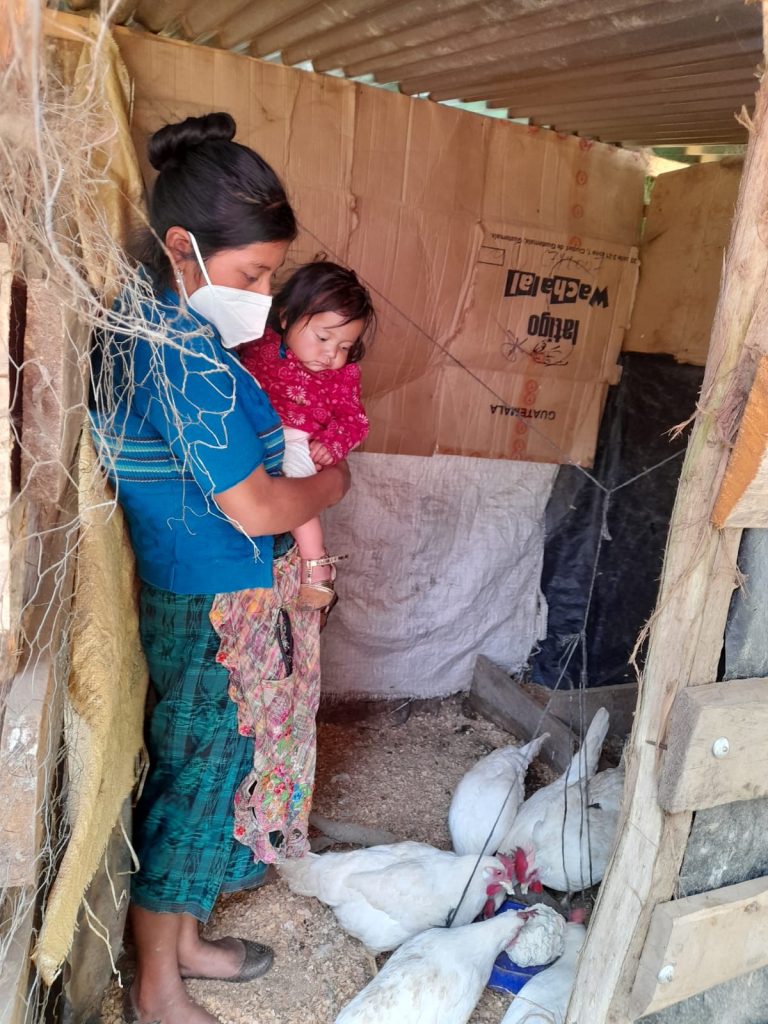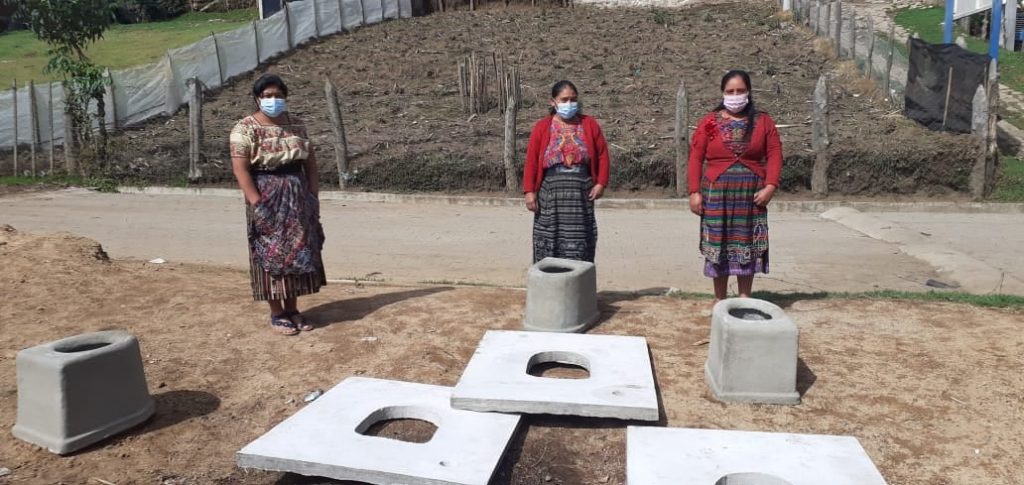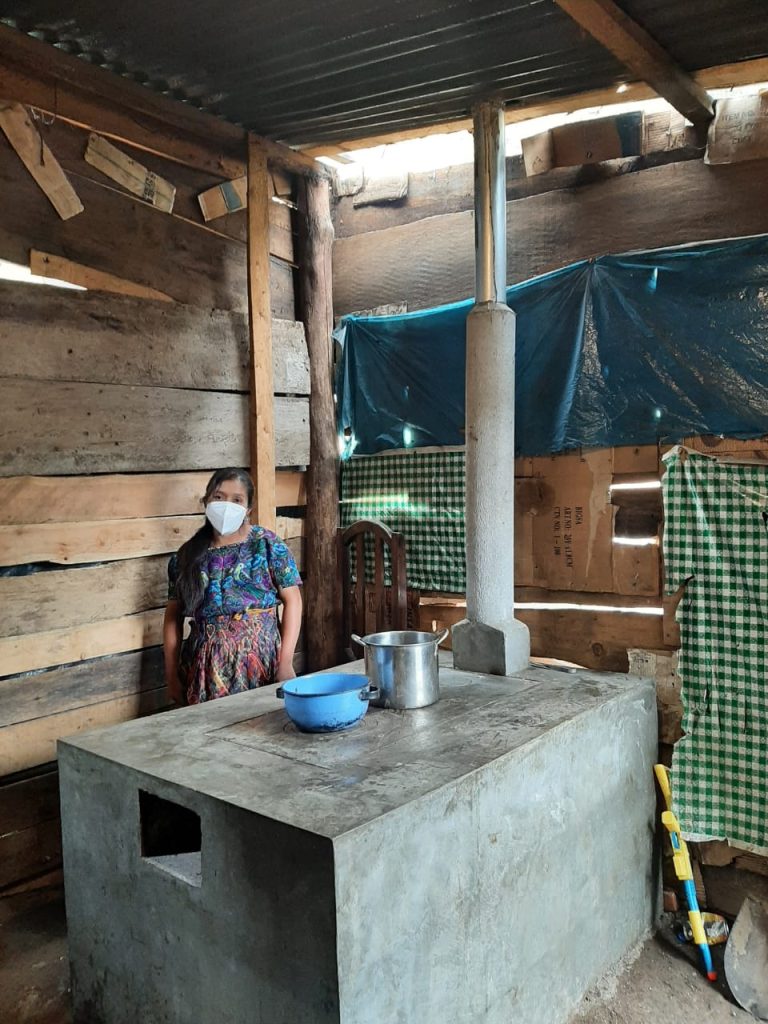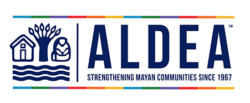Chuachalí is a village of 75 families, or approximately 488 people. The community was founded in 1926 by just a few families. It is located 3 miles from the municipal seat of Tecpán. The name “Chuachalí” comes from the Kaqchikel “chua” or “near” and “chali” a type of bush with yellow flowers, meaning “by the yellow flower bush”. About 35 percent of the population is Catholic and 30 percent is Evangelical. All community members speak the Kaqchikel language, but not all can also speak Spanish.
Agriculture is the main productive activity in the community, mainly corn and beans, but also some vegetables such as tomato and sweet peas. Some of the families work for bigger farms and get $7 a day, but work only between 2 and 3 days a week.
There is a school in the village with grades from preschool to sixth, with a total of 275 students and 6 teachers. There is a health post in the community, offering basic health services Tuesdays and Thursdays, apart from vaccines, and a nurse is in charge. 99 percent of homes have electricity and 90 percent of the roads are dirt.



Our Partnership:
ALDEA and ABPD began working with 50 Chuachalí families in July 2020 that completed our integrated program in May 2023. Click here to learn more about how we work with our partner communities and visit our blog to stay up to date with the latest developments on the ground in Guatemala!
